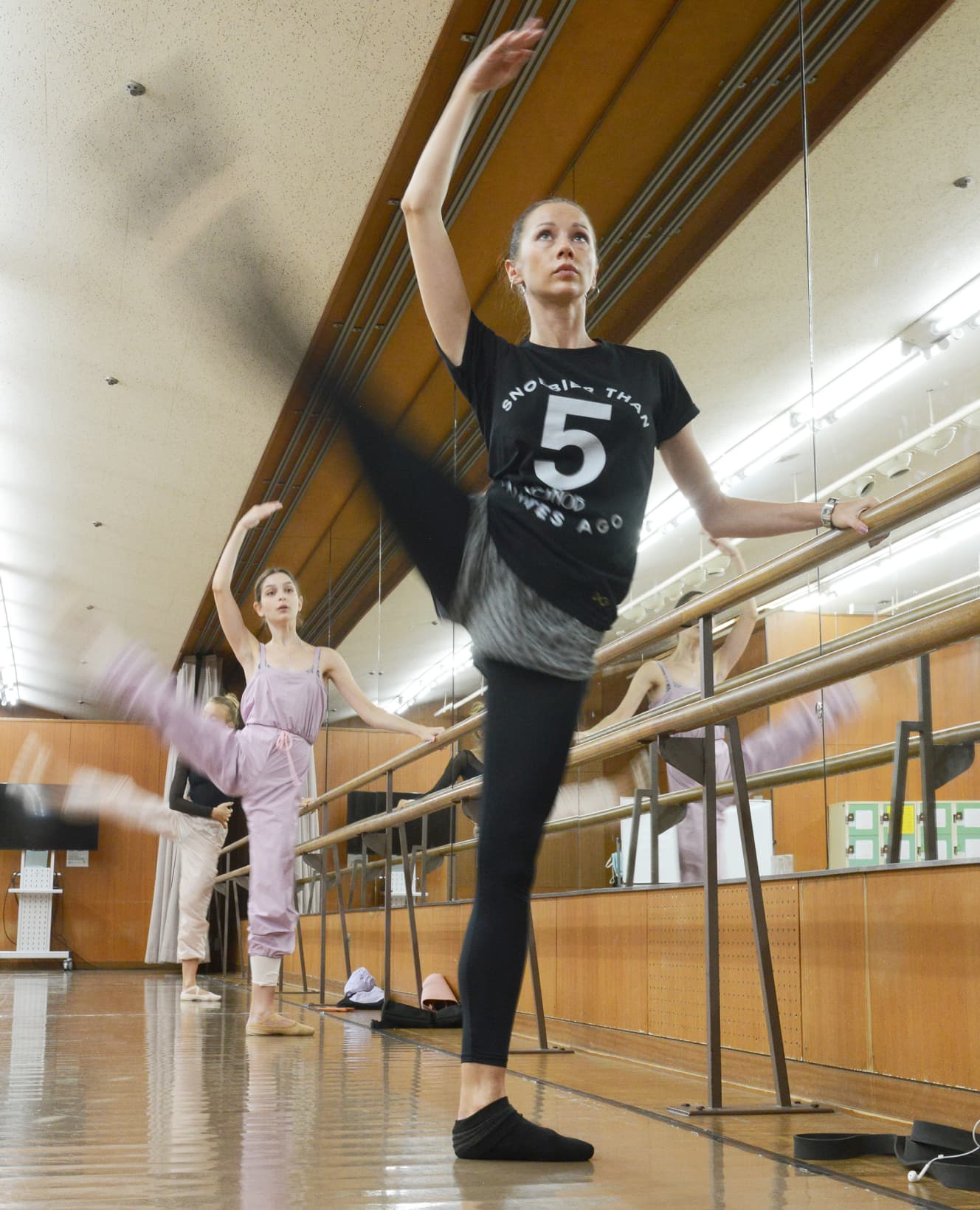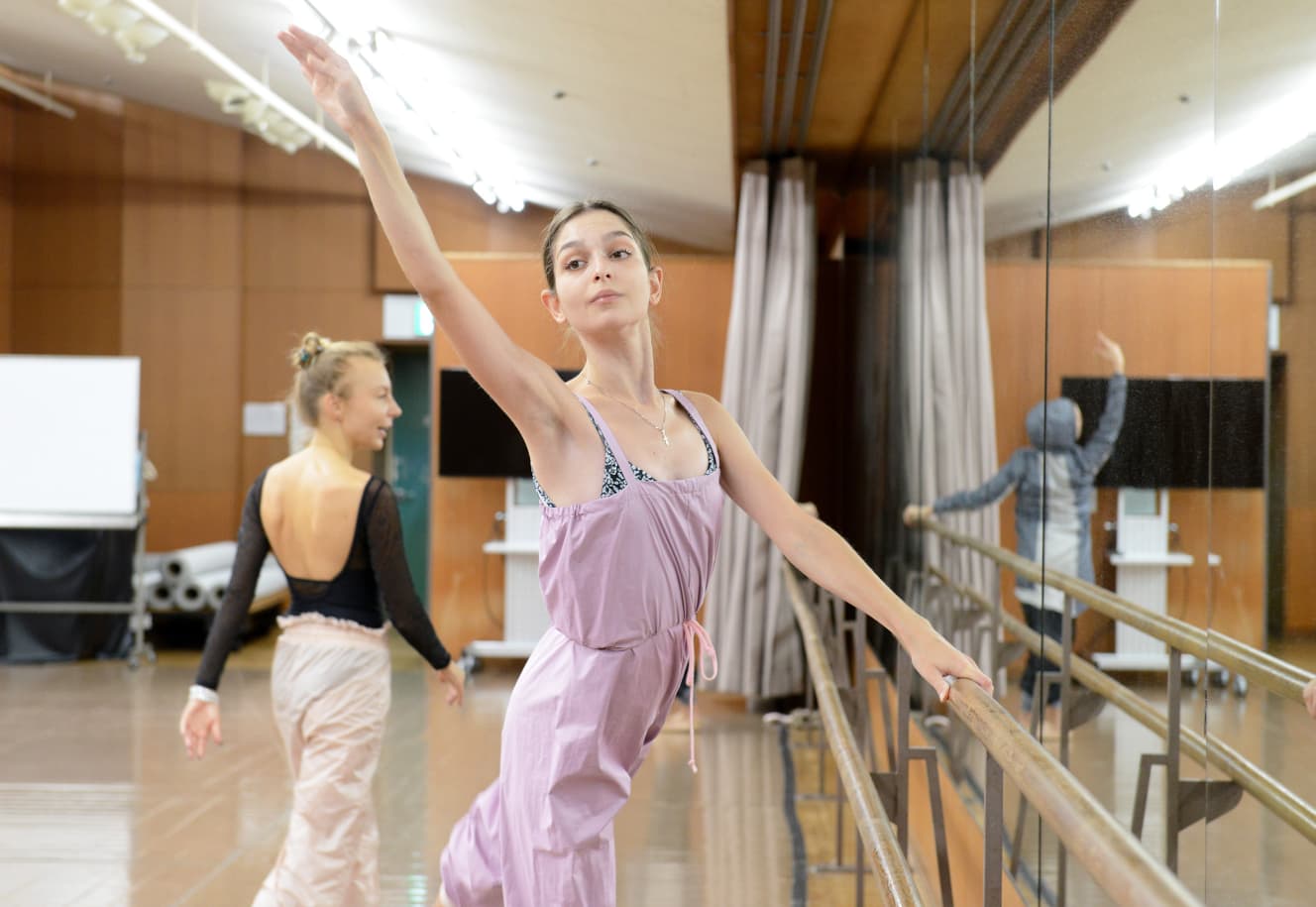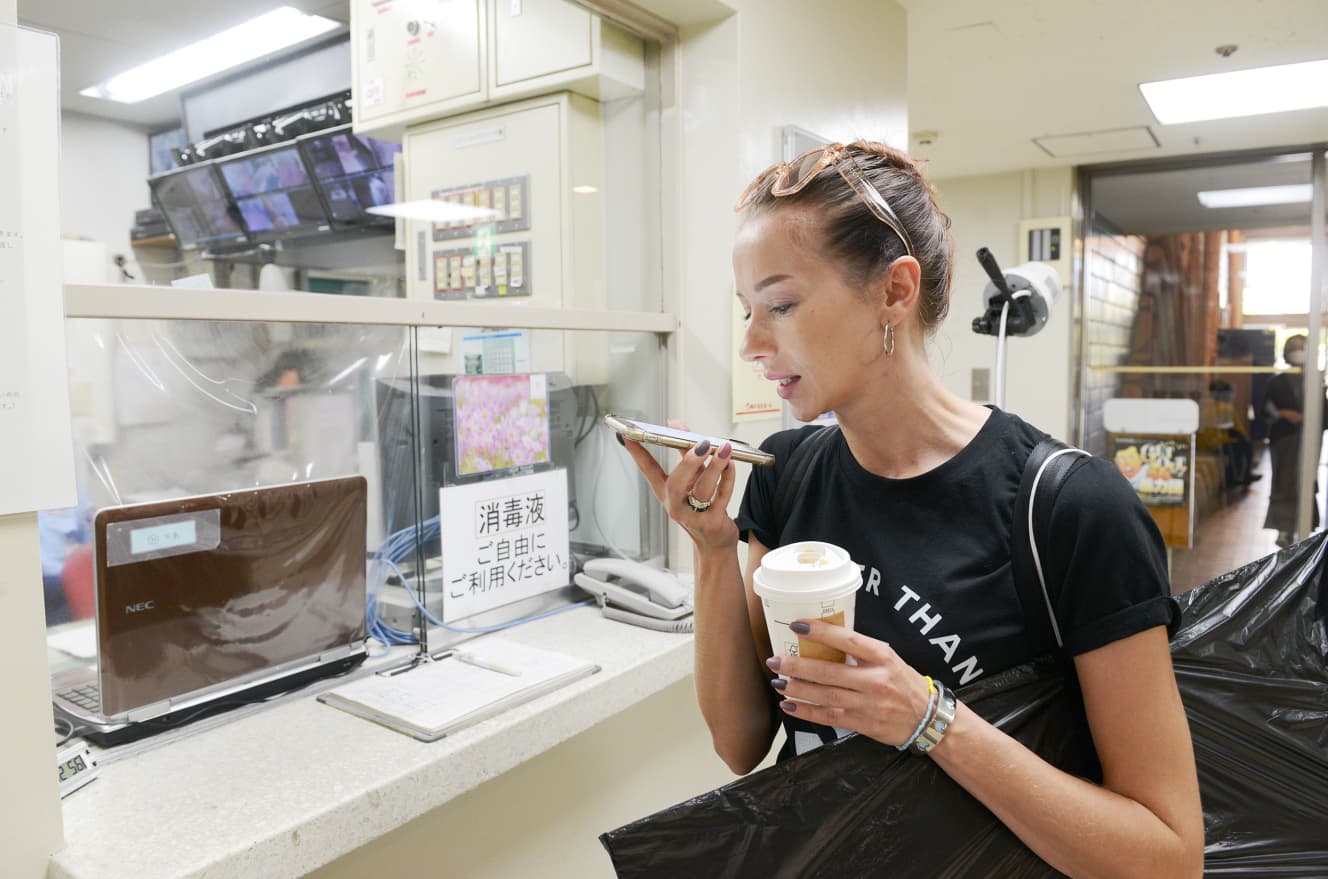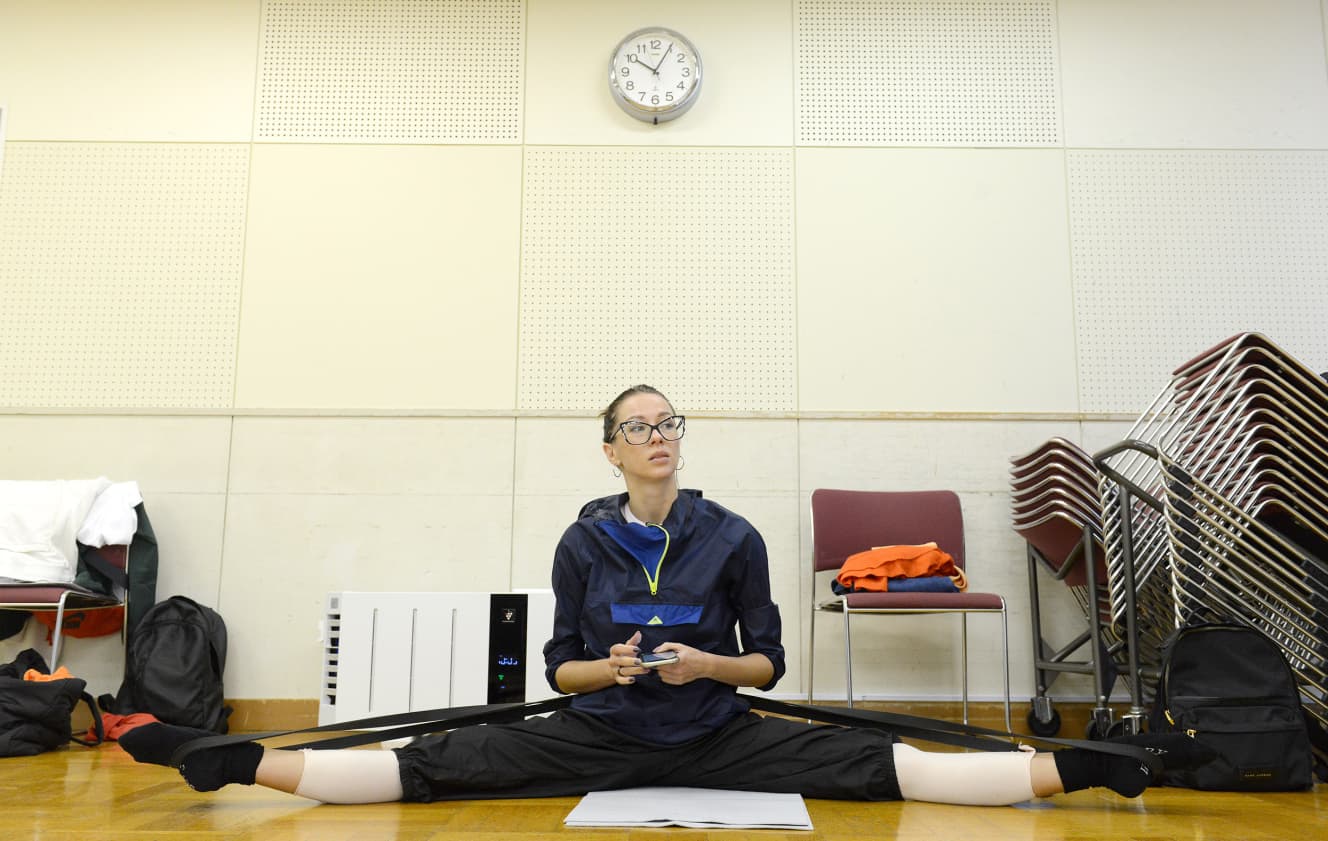Ukrainian Ballet Troupe Living in Kobe – The Unknown Plight of Displaced People
Six ballerinas came to Japan, but two returned home after getting caught up in a guarantor's mess.
To the melody of the piano, thin, supple legs quickly rose above their heads. Their toes extended straight up toward the ceiling. Each movement was smooth and natural, as if ingrained in their bodies. In a room at a facility in Kobe City, Hyogo Prefecture, in mid-October, refugees from Ukraine were practicing ballet on their own.
We are very grateful to have such a wonderful place for lessons. We are grateful for the generous support in terms of our daily lives. However, I got caught up in a mess between guarantors, and it has become a bit troublesome.

One of the ballerinas, Mara (30), confides, “I have a guarantor who is a Japanese refugee. A guarantor is a caretaker in Japan who takes care of the accommodation and other expenses of evacuees. As of October 26, 2,057 refugees have entered Japan since the Russian invasion of Ukraine. Some of them have run away from their places of stay or returned to Ukraine because of troubles with their guarantors. Mara and her family were no exception.”
Mara is a member of the ballet company of the National Odessa Opera House in Odessa, a port city in southern Ukraine, where she began dancing at the age of five and has devoted her life to it. She and her husband, 41, were living as evacuees in Germany to escape the ravages of war when they were suddenly offered a chance to go to Japan.
She was living as an evacuee in Germany with her husband, 41, to escape the ravages of war when she was suddenly asked to go to Japan. I was invited by a fellow member of the same ballet company to come with him to a performance in Japan.
This could be my chance. With great anticipation, Mara came to Japan for the first time in late April, accompanied by her husband, her younger brother (17), and her younger sister (16). Including Ms. Mara, there are six ballerinas from this ballet company gathered in Kobe. Including their families, a total of 14 people had dreamed of a grand plan to form a ballet company in Japan.
However, the performances did not come to fruition. When I finally got the chance to perform, it was as a guest dancer on two occasions. It’s better than nothing, though.
Mara sighs. Meanwhile, her husband has found a job in Japan and their life is stable, including the education of their younger brothers, so “I want to stay in Japan until the war is over,” she says.
It was the Japanese guarantors who devised the plan to form a ballet troupe. When the project began, there was a disagreement among the guarantors over the policy, and the ballerinas were pushed around as to which guarantor they would go with. At the end of August, three of the ballerinas, including two ballerinas, left Japan early. The three ballerinas, including the two ballerinas, left Japan early at the end of August.
The mess between the guarantors caused some of the ballerinas to become a little tense. The stress of being in the middle of a war has probably caused them to become more sensitive.
Victoria, 34, who trains with Mara, also smiles wryly.
I haven’t performed in Japan yet. The only time in my life that I haven’t been on stage is when I was pregnant. I came to Japan with my husband and two daughters because my guarantor called me and said, ‘I have a ballet job for you,’ but it wasn’t the same story.’
This was not enough for her, as she was performing three to four times a week in Odessa. Disappointed, Victoria switched guarantors.
“I stopped talking to my first guarantor,” she said. The new guarantor is very kind, and I believe I will be able to perform with him soon.
The refugees’ lives in Japan depend on their guarantors. Recently, another fellow ballerina has announced that she is returning to Ukraine. This is the third. The Odessa Opera House has already reopened, and she wanted to perform there.
They had to decide whether to stay in Japan or return to war-torn Ukraine. The girls’ hearts are also in a state of flux, depending on the situation at the time.



From the November 18, 2022 issue of FRIDAY
Photography and text: Takehide Mizutani (nonfiction writer)